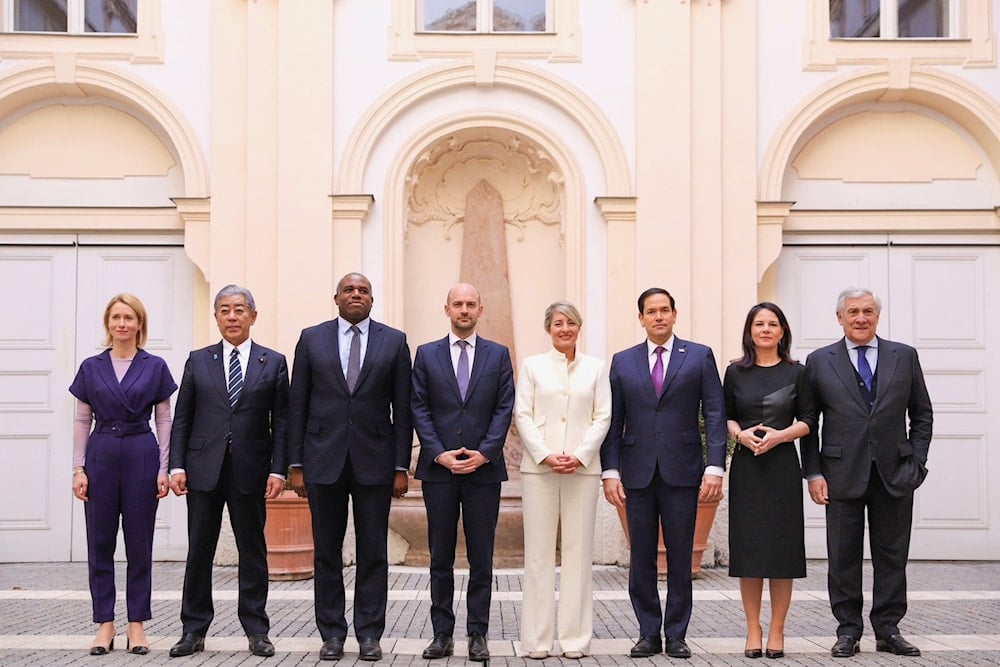G7 ties future sanctions on Russia to peace efforts in Ukraine
European leaders have voiced concerns over potential US-Russia negotiations that might sideline Ukraine and its allies.
-

The foreign ministers of the Group of Seven (G7) pose for a photo (X, @melaniejoly)
The foreign ministers of the Group of Seven (G7) announced on Saturday that any further sanctions against Russia will depend on its commitment to meaningful peace negotiations regarding Ukraine.
In a joint statement obtained by RIA Novosti, the G7 members affirmed that "any new, additional sanctions after February should be linked to whether the Russian Federation enters into real, good-faith efforts to bring an enduring end to the war against Ukraine that provides Ukraine with long-term security and stability as a sovereign, independent country."
Reiterating their position, the G7 reaffirmed their “unwavering support for Ukraine in defending its freedom, sovereignty, independence, and territorial integrity.”
This diplomatic stance follows a recent discussion between US President Donald Trump and Russian President Vladimir Putin. The two leaders held an extensive phone call on Wednesday, during which they agreed to commence negotiations immediately to seek a resolution to the conflict. Later that day, Trump reached out to Ukrainian President Volodymyr Zelensky before publicly stating that both Moscow and Kiev had expressed a willingness to bring an end to the hostilities.
Meanwhile, European leaders have voiced concerns over potential US-Russia negotiations that might sideline Ukraine and its allies. Ukrainian President Zelensky reaffirmed that Kiev will not accept an agreement brokered without its direct involvement, stating, "Nothing can be discussed on Ukraine without Ukraine." EU foreign policy chief Kaja Kallas also reinforced the necessity of European participation, warning against a resolution that excludes regional stakeholders.
Read more: Zelensky rejects US deal for 50% of Ukraine's mineral rights: Reports
Internally, discussions within the US administration continue regarding military assistance to Ukraine. US Vice President JD Vance has suggested that additional measures, including potential military deployments, remain on the table if Russia fails to engage in meaningful peace efforts.
At the same time, Vance's remarks at the Munich Security Conference have stirred controversy. His speech, which downplayed external threats from Russia and China while criticizing European political instability, was met with mixed reactions. Russian Security Council Deputy Chairman Dmitry Medvedev welcomed Vance's blunt critique of European governance, calling his remarks "the complete truth" and describing him as a "brave guy." However, Medvedev also suggested that Vance lacks the necessary experience for his role. European leaders, including German Chancellor Olaf Scholz, rebuked Vance’s position, asserting that the US should not interfere in European democratic processes.

 3 Min Read
3 Min Read











